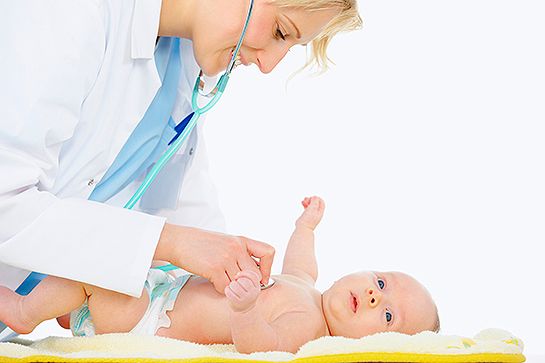Whooping cough, also known as pertussis or the 100-day cough, is a highly contagious bacterial infection of the lungs. It is caused by the bacteria Bordetella pertussis and is spread through tiny droplets of fluid when someone with the infection coughs, sneezes or talks. Infection can occur at any age, but it is more common in those under five years old, who are at highest risk of complications.
Symptoms
The incubation between exposure to whooping cough and symptoms is about seven days, with initial symptoms similar to a cold. Whooping cough often begins with a persistent dry and irritating cough that progresses to intense bouts of coughing. In children, the coughing usually ends with a 'whoop', produced when the child tries to take a breath (the noise is rare in patients under six months and adults). Coughing spells can lead to vomiting or a short lack of consciousness.
Other symptoms include a slight fever, diarrhoea and a runny nose. In babies, the coughing spasms may occur after feeding, during which the child may turn red or blue in the face, and it can cause apnea.
Diagnosis
Whooping cough can be diagnosed by observing the symptoms and from a swab taken from the throat or nose for traces of the bacteria. If you suspect whooping cough, or if your child develops a cough that causes vomiting and which doesn't improve after a couple of days, see a doctor. And seek urgent medical advice if your child seems particularly unwell, goes blue during coughing or has any other worrying symptoms.
Complications
2012 has seen the worst outbreak of whooping cough for decades, with 1,322 people infected in September alone. And it is newborn babies who are most at risk of death from the disease. Complications are uncommon but include pneumonia, brain damage, weight loss, seizures and bronchiectasis – a lung condition where the small airways become enlarged. In babies, whooping cough can cause apnea and sometimes sudden death.
Prevention
In the UK, all pregnant women are now to be offered vaccination against whooping cough when they are 28-38 weeks pregnant. Newborns are too young to be protected by routine vaccinations, which take place at two, three and four months, so getting injected while pregnant could help protect your baby in its first few weeks of life. Since 2001 children in the UK have been routinely offered a preschool booster between the ages of three and five.
Recovery
If your baby is less than six months old, it is likely they will be admitted to hospital straight away where they might receive antibiotics via a drip or oxygen to help them breathe. If your child is older than six months, your doctor will probably prescribe antibiotics – the earlier your child has antibiotics, the sooner the recovery. If given later, they may not shorten the course of the illness but will help prevent it spreading further. You can help your child recover with plenty of fluids and rest. Paracetamol at the correct dosage may also give relief.
This page is for general information only and should not be treated as a substitute for medical advice









